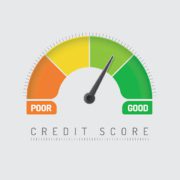How to Eliminate Mortgage Insurance
Most buyers have heard of Mortgage Insurance and know that it is insurance that does not protect them but rather the lender against them defaulting on the home loan.
What most buyers don’t know is how they can avoid or when it can removed from their mortgage.
Mortgage insurance (MI) comes in the form of a few different names but it is essentially the same thing.
 Conventional loans refer to it as PMI (Private Mortgage Insurance) whereas FHA and Rural Development (RD) refer to it as MIP (mortgage insurance premium). VA does not have it at all but they have a funding fee on most loans that is added to the principal balance. FHA and RD have a similar add on fee that is called upfront mortgage insurance.
Conventional loans refer to it as PMI (Private Mortgage Insurance) whereas FHA and Rural Development (RD) refer to it as MIP (mortgage insurance premium). VA does not have it at all but they have a funding fee on most loans that is added to the principal balance. FHA and RD have a similar add on fee that is called upfront mortgage insurance.
Regardless of what it is called and where it is charged, MI is a fee that lenders use to offset the losses that occur when people don’t pay on their loans. It is charged to many to pay for the sins of a few.
For conventional loans, if you have 20 percent down, you will not be charged MI.
FHA and RD have mortgage insurance as a monthly fee regardless of the equity position, so even if you put 20 percent down on these loans, you will have mortgage insurance.
I am often asked how clients can get rid of mortgage insurance. Obviously, not everyone has enough savings to put 20 percent down but they don’t want to have this fee on their loan forever.
Again, RD and FHA have it no matter how much you put down, but for conventional loans, there are a couple creative ways to get rid of the mortgage insurance.
Option 1: Pay a fee upfront and not have a monthly mortgage insurance at all. While this helps reduce the total monthly payment, it is not always a wise decision. If the borrower will not be in the loan for long enough to recoup charge to remove it, the benefit it is not advisable to buy out of the MI. Similarly, it does not make sense to buy out of MI in an interest-rate environment that seems to be going down. In other words, if the person is likely to refinance or sell in the next 24 -to-36 months, it probably does not make sense to pay a flat fee to get out of the mortgage insurance.
Given enough time in the mortgage, however, you can save up to 50 percent of what you would otherwise eventually pay monthly. In other words, paying upfront gives you a discount if you stay in the loan long enough.
Option 2: Have the lender pay it for you. This is called lender paid MI. Buyer beware on this tactic. While this sounds great, there is no free lunch; that maneuver will inevitably increase your interest rate.
Option 3: Get a first mortgage and a second mortgage. Assume a buyer had a 10 percent down payment. They would finance 80 percent of the sale price on the first mortgage but then close the loan with a second mortgage for the remaining 10 percent. It sounds like a great idea until you realize that the interest rate on the first mortgage has a substantial price adjustment when you piggyback it with a second mortgage. Additionally, the second mortgage itself is generally a higher interest rate and oftentimes interest only. In the end, this tactic is not usually worth the effort.
If a buyer opts to have normal monthly MI, which many do, the next question is how does one get rid of Mortgage insurance once they have it?
Previously we mention that that on FHA and RD the mortgage insurance stays on for the life of the loan. This means the only way to eliminate the insurance is to refinance.
For conventional loans, mortgage insurance is eliminated in a couple of different ways.
It is automatically removed once a consumer pays 22 percent off of the originally borrowed loan amount. It can also be removed with an appraisal that shows 20 percent equity. A third way to remove the mortgage insurance is with a refinance.
In an environment where there has been a lot of equity, interest rates have been reduced, and the consumer has paid down the loan enough, refinancing is often times very good option.
All of this is to say that the need for a trusted advisor who manages your debt annually is imperative. Our job is just beginning once you close your loan. We help you build financial wealth with real estate and manage your debt to your advantage. We are here to guide you.












Leave a Reply
Want to join the discussion?Feel free to contribute!